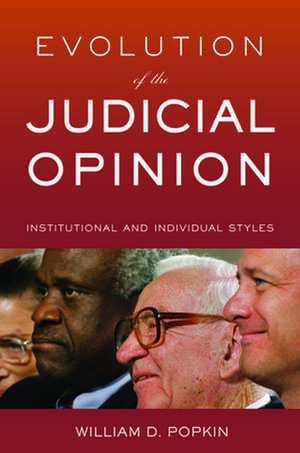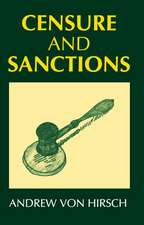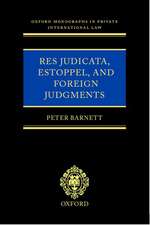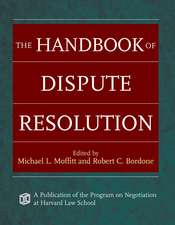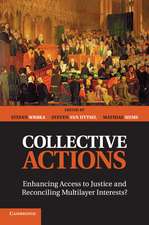Evolution of the Judicial Opinion – Institutional and Individual Styles
Autor William D. Popkinen Limba Engleză Hardback – 30 sep 2007
Preț: 471.06 lei
Nou
Puncte Express: 707
Preț estimativ în valută:
90.13€ • 94.36$ • 74.58£
90.13€ • 94.36$ • 74.58£
Carte tipărită la comandă
Livrare economică 05-19 aprilie
Preluare comenzi: 021 569.72.76
Specificații
ISBN-13: 9780814767269
ISBN-10: 0814767265
Pagini: 302
Dimensiuni: 200 x 236 x 24 mm
Greutate: 0.54 kg
Editura: MI – New York University
ISBN-10: 0814767265
Pagini: 302
Dimensiuni: 200 x 236 x 24 mm
Greutate: 0.54 kg
Editura: MI – New York University
Recenzii
"Evolution of the Judicial Opinion contains a wealth of historical information and empirically-based argument that provides the reader with a thorough discussion of how the contemporary approach to judicial opinion writing has developed. It will prove to be an indispensable reference"
—Law and Politics book reviewThis work constitutes a perspicacious guide to recovering the vitality and importance of judicial opinions, and it offers recommendations forthe proper mission of judges within a changing legal culture. . . . Recommended.
Choice "There is no better book for conveying the hidden literary value in the judicial opinion of our time.
Robert A. Ferguson, author of The Trial in American Life
—Law and Politics book reviewThis work constitutes a perspicacious guide to recovering the vitality and importance of judicial opinions, and it offers recommendations forthe proper mission of judges within a changing legal culture. . . . Recommended.
Choice "There is no better book for conveying the hidden literary value in the judicial opinion of our time.
Robert A. Ferguson, author of The Trial in American Life
